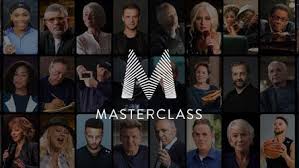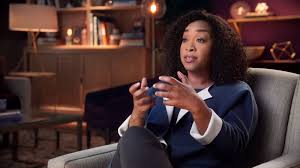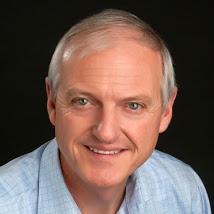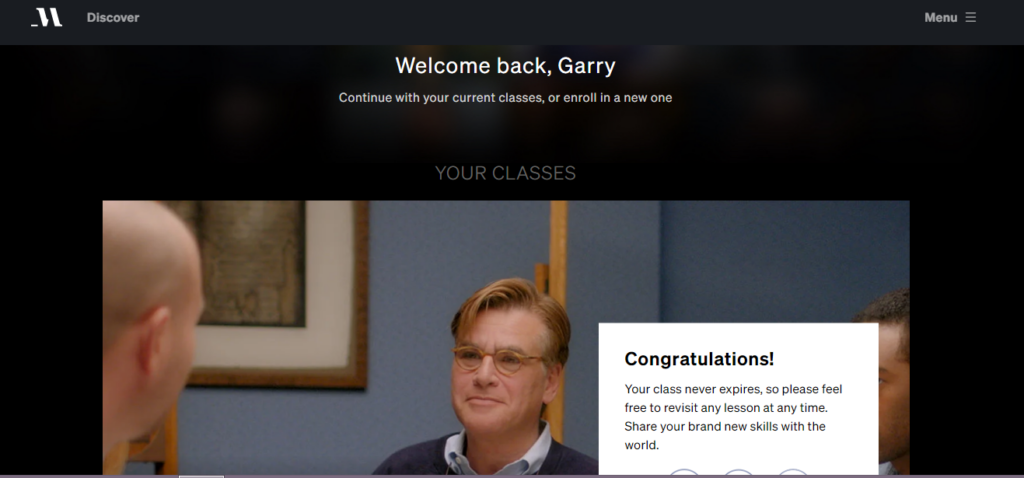Most writers constantly try to improve their craft. Whether you write thrillers, mystery, romance, sci-fi, dystopian, non-fiction, web content, blogs or whatever, you always feel your work can be better. At least that’s what goes on in my mind.
I like to say I’m a life-long learner. I’ve gone to school for sixty-four years and still don’t know what I’m going to be when I grow up. Maybe that’s why I’m hooked on watching MasterClass.
What’s MasterClass, you ask? Well, it’s “an American online education platform on which students can access tutorials and lectures pre-recorded by experts in various fields’. (I didn’t write that line. I copied and pasted it from Wikipedia.)
No underhanded plagiarism intended, though, as I believe MasterClass is the most helpful and professional resource that’s hit the net. It started as an idea floated between David Rogier and Aaron Rasmussen in 2014. They formed Yanka Industries Inc. and published their first MasterClass on May 12, 2015. Within the first few months, they signed over 30,000 subscribers,
 MasterClass snagged a big fish for their first day in the derby. James Patterson, one of the world’s top-selling thriller writers, opened the show. I was among the first with a front-row seat, popcorn, and a drink. Since then, I’ve taken 21 MasterClasses in subjects ranging from writing to film production to cooking to motivation to science. You could say I’m a master class junkie.
MasterClass snagged a big fish for their first day in the derby. James Patterson, one of the world’s top-selling thriller writers, opened the show. I was among the first with a front-row seat, popcorn, and a drink. Since then, I’ve taken 21 MasterClasses in subjects ranging from writing to film production to cooking to motivation to science. You could say I’m a master class junkie.
If you’re not familiar with the MasterClass format, let me give you a brief introduction before we take a close look at how James Patterson’s thriller writing MasterClass unfolds. I truly believe subscribing to MasterClass and getting a wide exposure to A-List resources can do a lot for you as a writer. You’ll take your craft to the next level as well as increase your confidence, amplify your motivation, and create satisfaction (i.e. happiness).
Nothing in a MasterClass production is amateurish or cheesy. Their course material is audience appropriate and their film works rival anything you’ll see on Netflix. From the instructor’s poise to the perfect setting, you’ll fall under the MasterClass spell and stick to it through each session. Qualification—that’s as long as you’re passionate about the subject.
A typical MasterClass runs between 15 and 25 sessions. The segments range in time from 3-minute intros to more than 20-minute lessons. That makes for a class series of blocks at around 3 to 5 hours of total film time. It depends on the subject and the presenter.
 There are three parts to a MasterClass production. One is the on-camera time where the presenter lectures and/or demonstrates. Two is a PDF workbook that acts as a script guide and notebook. Three is behind-the-scene access to material that adds value to your purchase.
There are three parts to a MasterClass production. One is the on-camera time where the presenter lectures and/or demonstrates. Two is a PDF workbook that acts as a script guide and notebook. Three is behind-the-scene access to material that adds value to your purchase.
Speaking of purchase, MasterClass has two fees. One is $90 for a single class. Two is $180 annually for an “All Pass”. For under two hundred bucks, you can buy an unlimited subscription that gives you access to all classes. Given there are well over 50 classes, that’s an exceptional value.
To say MasterClass recruits knowledgeable instructors is an understatement. These are the best-of-the-best in their field, and the MasterClass producers know that success sells. Like the promise in Steven Covey’s The 7 Habits Of Highly Effective People, MasterClass delivers on the logic that successful people have it figured out, so be more like them.
I’ve swallowed the MasterClass KoolAid as you can tell from the tone of this piece. I make no apologies that I believe watching a MasterClass can do one thing for you, as a writer, above all else. I’ll tell you at the end, but first I want to list some MasterClasses I’ve watched and highly recommend to other writers.
James Patterson — Thriller Writing
Dan Brown — Thriller Writing
David Baldacci — Thriller Writing
Neil Gaiman — Storytelling
Malcolm Gladwell — General Writing
Joyce Carol Oates — Fiction Writing
Margaret Atwood — Fiction Writing
R.L. Stine — Children’s Writing
Judy Blume — Fiction Writing
David Mamet — Plot Writing
Aaron Sorkin — Screen Writing
Shondra Rimes — TV Writing
Ron Howard — Film Directing
Martin Scorsese — Film Producing
Bob Woodward — Journalism
My MasterClass interests go outside of what information I can glean on writing. Chris Hadfield’s class on space exploration is out of this world and Gordon Ramsey taught me how to make the best scrambled eggs without swearing at the stove. Wolfgang Puck? Excellent show. So was Annie Leibowitz on photography.
I’ll stop with name-naming. I want to take you inside an actual MasterClass, and I can think of no more applicable class for the Kill Zone bunch than James Patterson’s. Here’s his MasterClass curriculum taken from the show’s PDF.
01 Introduction: Your instructor, James Patterson—currently the best-selling author in the world—lets you know what he has planned for your class and what you’ll need to learn to start writing your own best-sellers.
02 Passion + Habit: Getting into the proper mindset is an essential first step to writing a best-seller. This lesson explores James’s secrets for staying focused, productive, and motivated.
03 Raw Ideas: How do you recognize a great idea? How do you figure out if it’s worthy of your effort? James spells out the techniques he uses to generate his ideas and then separate the good ones from the less compelling ones.
04 Plot: With the right plot, your reader won’t be able to stop turning the pages. In this lesson, James measures out his unique approach to developing plot lines that keep readers wanting more.
05 Research: For James, conducting in-depth research not only makes his writing better, it also boosts his credibility with his readers. Find out when and how James conducts his research and how he incorporates it into his writing in a thoughtful way.
06 Outlines — Part 1: James’ secret weapon is a comprehensive outline. Learn how he sets himself up for a fast and successful first draft. No matter what, don’t skip this lesson!
07 Outlines — Part 2: James has never shown the outline for his best-seller Honeymoon to anyone (not even his publisher) until now. Follow along with the outline provided in your Class Workbook as James further explains his process.
08 Writer’s Block: Even when you’ve written as many books as James has (76 best sellers and counting), there’s still nothing scarier than staring at the blank page. Here’s how to conquer those fears.
09 Creating Characters: From Alex Cross to Michael Bennett, James has mastered the art of creating complex and memorable characters. Hero to villain, learn how to make your character stay with your reader well beyond the last page.
10 First Lines: Grab your reader’s attention quickly and make them hold on for dear life. James shares his tips for getting your reader hooked from the very first line.
11 Writing Dialogue: Dialogue should always push the story forward. Listen to James explain a few common dialogue pitfalls and easy ways to avoid them.
12 Building A Chapter: James is well known for his numerous short and snappy chapters. Learn how he propels the reader through the book with an outline as his roadmap.
13 Writing Suspense: The secret to suspense is…
14 Ending The Book: We’ve all read great books with terrible endings. Of the infinite possible endings, learn how James chooses the right one.
15 Editing: James is liberal with a red pen; his editing is key to keeping the reader engaged. Learn how to trim the fat with our interactive editing assignment.
16 Working With A Co-Author: When does James decide to use a co-author and is it a true collaboration? In this lesson, we meet two of his most trusted co-authors who share their process for making a collaboration truly successful.
17 Getting Published: Author of 76 best-sellers and holder of the Guinness World Record for the first person to sell over 1 million eBooks, James knows a thing or two about getting published. In this lesson, he shares what he’s learned.
18 Book Titles And Covers: Readers do judge books by their covers. What should they think about yours?
19 Marketing The Patterson Way: Before publishing his first book, James was an executive at a top ad agency in New York. Find out what James learned from his time in advertising and how he used it to change the book marketing game.
20 Hollywood: What happens when Hollywood takes an interest in your story? Sit back and listen as James shares the best and worst moments from his time on the set.
21 Personal Story: Every master begins as a student. James shares his long, winding path to becoming the world’s best-selling author.
22 Closing: You’ve been given the tools to help write your next book. Now what?
It’s hard to say the main takeaway, but I’d have to say it’s how much James Patterson stresses about outlining your work before starting the overall draft. He’s a plotter, through & through. Me? I’m more of a pantster, but I’m not here to argue with James Patterson’s success.
Nor do I dispute the amazing success following the names Brown, Baldacci, Gaiman, Attwood, Blume, Oates, Sorkin, and so on. These are top-caliber craftspeople. But as I watched their personalities unfold on the screen, I got the distinct impression these are not born-on-third-base people. They’re self-made professionals.
This realization made me think. If they can make it, maybe I can, too. So I looked for common denominators running through each class and what their experiences presented in their MasterClasses can do for a writer. Here’s what I found.
All presenters say there’s no set formula for success—no magic bullet.
There are processes to follow and there are principles to follow. However, each success story comes from trying new things and finding what works for the individual.
All presenters find the story.
They intimately understand their craft whether it’s fiction writing, screenwriting, directing and producing films, cooking, or flying a starship. In the spine of every success, there’s a story. A successful story they made happen by improving their craft.
All presenters do the work.
They didn’t slide into home from third. Most, if not all, struck out many times before they got a line-drive to first base never mind cracked it over the Green Monster. These MasterClass writers sat alone with their sore butts in the chair and their blistered fingers on the keys for a long, long time. They did the work.
All presenters have critics.
They get 1-Stars on Amazon and rotten tomatoes thrown at them. It goes with the game, and they grow tough hide. They learn from valid criticism, they trashcan the trolls, and many no longer bother to read their reviews.
All presenters have passion.
Some MasterClass instructors say this directly. With some, passion naturally flows from their style. Their words, their body language, their dress, and their demeanor show it. Everything about them oozes passion—controlled passion—and it infectiously slides onto the student.
Gordon Ramsay says, “Find a passion because everything else falls into place once you’ve got that track set.” Chris Hadfield’s quote is this. “Every single step you take in the direction of your dreams is one that will make you happier and more satisfied with yourself.” I think the space-man sends a universal message.
I’m passionate about writing. I know that improving my craft by watching MasterClass leads to greater satisfaction and happiness. And, I believe that’s what Masterclass can, above all else, do for you as a writer—make you feel happy.
* * *
 Garry Rodgers is a retired RCMP homicide detective. He went on to a second career as the person no one wants an appointment with — a coroner. Garry’s business card used to say, “When Your Day Ends, My Day Starts”. His boss made him get rid of it.
Garry Rodgers is a retired RCMP homicide detective. He went on to a second career as the person no one wants an appointment with — a coroner. Garry’s business card used to say, “When Your Day Ends, My Day Starts”. His boss made him get rid of it.
Since then, Garry Rodgers reinvented himself as a crime writer who constantly strives to improve his craft and find satisfaction through indie-publishing electronic words. Garry also finds happiness by putting around the saltwater near his home on Vancouver Island in British Columbia on Canada’s Pacific coast.

